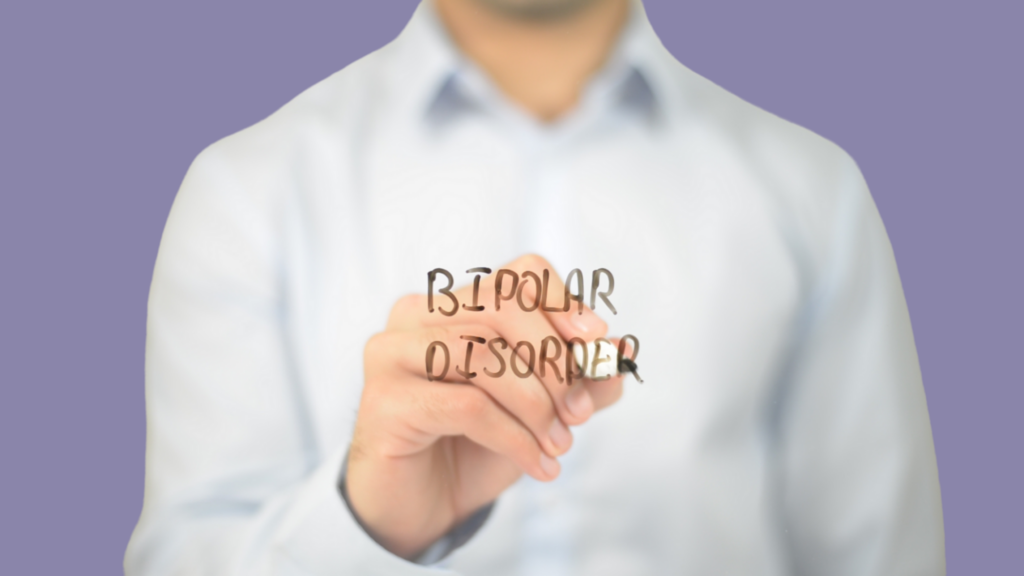
Contributing Experts: Dr. Paul Berkowitz and Dr. Heerain Shah
Outpatient Psychiatrists and Co-Chief Medical Officers, Geode Health

Mental Health Symptoms Often Start in the Primary Care Office
When someone experiences persistent fatigue, sleep difficulties, or recurring pain, they often reach out to their primary care provider (PCP). PCPs are trusted, familiar, and typically the first stop for any health concern.
What many don’t realize is that these physical symptoms may be signs of underlying mental health conditions like anxiety or depression.
Primary care is the front line of healthcare—and increasingly, it’s also the front line of mental health. This reality presents both a challenge and an opportunity. By recognizing early signs of mental distress and knowing when to connect patients to specialized care, PCPs play a decisive role in closing the gap between physical and psychological health.
The First Signs Are Often Easy to Miss
Patients don’t typically walk into a doctor’s office and say, “I’m struggling with my mental health.” More often, they report symptoms like insomnia, low energy, weight changes, trouble concentrating, or even vague physical complaints. While these can stem from physical issues, they may also indicate mental health conditions.
“Sometimes, patients don’t realize they’re struggling with a mood or anxiety disorder—they just know something feels off,” said Dr. Paul Berkowitz, Outpatient Psychiatrist and Co-Chief Medical Officer at Geode Health. “It’s easy to chalk it up to aging, stress, or family responsibilities. But with thoughtful, gentle questions, you can uncover depression or anxiety.”
PCPs are uniquely positioned to catch these early signs. With simple, validated tools like the PHQ-9 or GAD-7, they can screen for depression and anxiety during routine visits. Still, obstacles remain—short appointment times, limited training in mental health, and the stigma that may keep patients silent.
“A woman in her early 40s came in complaining of chronic headaches, oversleeping, and fatigue. Her PCP conducted a full medical workup but found no clear physical cause,” Dr. Berkowitz shared. “It wasn’t until she became emotional at the end of the visit that her doctor recognized the signs of severe depression. A timely referral to a Geode psychiatrist made all the difference in her recovery.”
Mental Health Is a Daily Reality in Primary Care
Mental health issues are not rare in primary care—they are everywhere. Recent data shows that 11.7% of primary care visits in the U.S. involve a mental health concern. Depression and anxiety make up nearly 40% of those.
Yet, referrals to mental health specialists happen far less frequently than they should. One study found fewer than 17% of mental health-related primary care visits resulted in a referral. And even when PCPs attempt to refer, they face hurdles—limited provider availability, insurance restrictions, and long wait times.
“It’s a difficult position for our primary care colleagues—they want to help, but systemic barriers often stand in the way,” said Dr. Berkowitz. “We need seamless pathways to get patients referred into the mental health care system. The need is enormous, and when a patient is ready, these moments are critical.”
“Primary care doctors are doing their best, but they’re overwhelmed,” added Dr. Heerain Shah, Outpatient Child, Adolescent, and Adult Psychiatrist and Co-Chief Medical Officer at Geode Health. “We need systems that support them—because the need is massive.”
To Treat or To Refer?
Most PCPs feel confident managing mild to moderate anxiety or depression. They might prescribe a first-line SSRI or suggest lifestyle changes. But referral becomes essential when symptoms are severe, or treatment fails to help.
Unfortunately, there’s no universal standard for when or how to refer. Some health systems use collaborative care models that support PCPs in connecting with behavioral health experts, while others leave providers to figure it out alone.
Dr. Shah recalled a recent case: “A teenager in Georgia showed up at her PCP’s office with weight loss and trouble concentrating. Her doctor suspected an eating disorder and referred her to a Geode psychiatrist within the week. That early handoff helped avoid hospitalization and got her on the road to long-term recovery.”
He added, “Streamlining the referral process is a win for patients—and it makes our primary care colleagues’ jobs more manageable.”
Why Timely Referrals Matter
Delayed or missed referrals can lead to worsening symptoms, inappropriate treatments, and lost opportunities for improvement.
“Think of it like chest pain,” said Dr. Berkowitz. “If a PCP suspects heart trouble, they don’t hesitate to refer a patient to a cardiologist. It should be the same with mental health.”
Quick referrals let specialists provide the right interventions—whether that’s adjusting medication, offering psychotherapy, or managing complex conditions like PTSD, bipolar disorder, or substance use. For PCPs, having a psychiatrist in the loop adds an important safety net. Coordinated care strengthens outcomes across the board.
A System Without a Standard
Although national guidelines recommend routine mental health screening in primary care, referral practices vary widely. Some providers refer often; others rarely do. Much of the difference depends on training, access to specialists, and how well a healthcare system supports mental health integration.
To help patients know when to see a psychiatrist, Geode Health prioritizes strong collaboration between PCPs and psychiatrists in key markets like Georgia, Texas, North Carolina, Illinois, and Wisconsin.
“In some regions, we’ve built strong relationships with local PCPs,” Dr. Berkowitz noted. “They know they can call us, help patients book online, or use our CareSync program for fast referrals. And that collaboration means patients get what they need—quickly.”
Do You Always Need a Referral?
Not necessarily. It depends on your insurance and, sometimes, your location. Patients with PPO plans can usually go directly to a mental health provider. Those with HMO plans may need a referral from a PCP for coverage to apply.
Even when not required, a referral can help ensure that mental health care is part of a patient’s overall care plan. It also improves communication between providers.
For patients, the key takeaway is: Don’t wait. Whether you start with your PCP or seek help directly, the most important thing is to reach out and know how to choose a psychiatrist.
Moving Toward a Culture of Connection
Mental healthcare is healthcare—and our systems need to reflect that. That means giving PCPs better tools, expanding access to psychiatrists and therapists, and removing barriers to care.
“We need our PCP colleagues to feel empowered to refer patients and follow through,” said Dr. Shah. “I want us to reach a place where referring to a psychiatrist is just as routine—and stigma-free—as referring to dermatology or physical therapy.”
Geode Health is proud to lead that shift. With a growing national presence and a strong focus on community-based care, Geode is helping bridge the gap between primary care and mental health in communities across the country.
Need Help Now?
If you or someone you know is struggling or needs a psychiatrist for anxiety, don’t wait. We have locations all over the US, whether you’re looking for a therapist in Joliet, IL or a therapist in Flower Mound TX, help is always available. Contact your primary care provider or visit book.geodehealth.com to find care near you.
About the Authors
Paul Berkowitz, MD, and Heerain Shah, MD, are Outpatient Psychiatrists and Co-Chief Medical Officers at Geode Health, a national network of mental health providers delivering accessible, high-quality care. They bring decades of clinical experience and a shared commitment to advancing integrated mental health services across the U.S.


